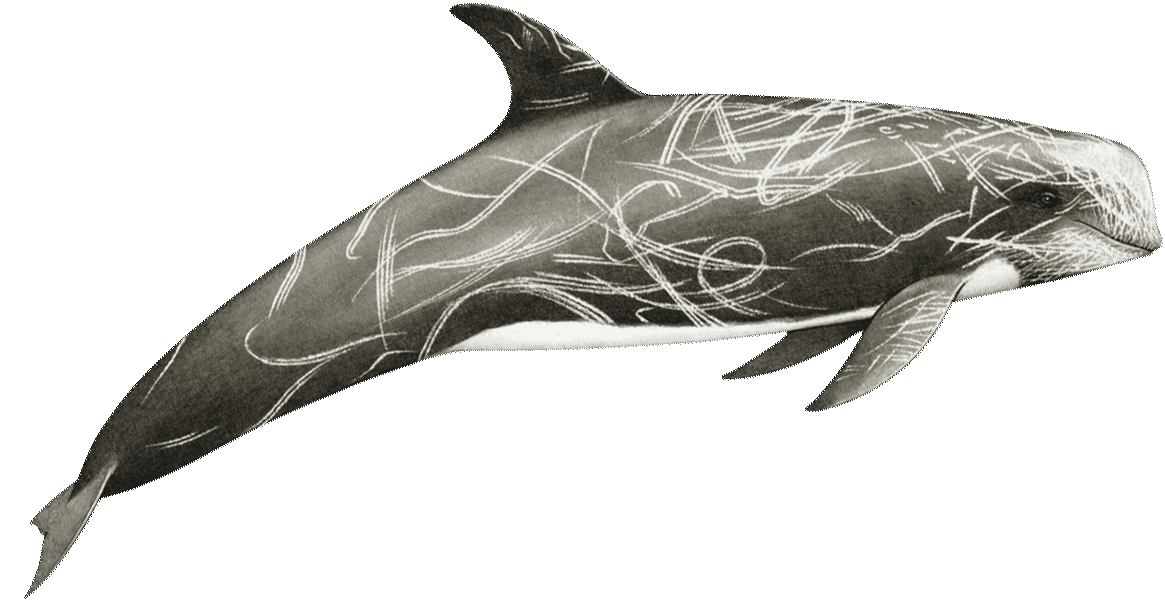
Risso’s Dolphin
Grampus griseus
Scientific Classification
| Kingdom | Animalia |
|---|---|
| Phylum | Chordata |
| Class | Mammalia |
| Order | Cetartiodactyla |
| Suborder | Odontoceti |
| Family | Delphinidae |
| Genus | Grampus |
| Species | griseus |

Risso’s dolphins are typically 10 to 13 ft long (3 to 4 m) and weigh 660 – 1,100 lb (300 to 500 kg).
They can live for 35 years or more.
Risso’s dolphins feed mainly on squid but also consume fish. They have no beak, no teeth on the upper jaw, and only a few on the lower jaw.
They are distributed worldwide in tropical and temperate oceans and frequent mostly continental shelf waters.
Threats to Risso’s Dolphins
Habitat shifting and alteration, fishing & harvesting of aquatic resources, anthropogenic (human-created) noise
Current Population Trend
Unknown
 |
Conservation Status The IUCN Red List tracks the conservation status of organisms around the world. Visit the Red List to learn more about the conservation status of Risso’s dolphins. |
OCS Research Insights
Collecting data on Risso’s dolphins off California is hard! They are boat-shy and usually tend to dive when approached.
Off Los Angeles, Risso’s dolphins “replaced” pilot whales in the late 1990s. But after a few years, they moved away, following their favorite prey – squid. We now see them only occasionally.
Off Southern California, Risso’s dolphins tend to form mixed groups, mostly with offshore bottlenose dolphins – and yes, we have witnessed interbreeding!
Risso’s Dolphin Facts
• Infants are grayish-brown – as they mature, they become almost white from tooth marks inflicted during physical interactions with other individuals.
• A Risso’s dolphin, (called Pelorus Jack) escorted boats into Admiralty Bay in New Zealand for over 20 years!
• Risso’s are typically a deep-water species – therefore, scientists still don’t know a lot about them.
SUPPORT CONSERVATION
Protect whales and dolphins now and for future generations
TAKE ACTION!
Here's how you can help
Learn Safe Observation
Learn how to safely observe whales, dolphins and other marine mammals - whether from a boat, surfboard or when kayaking or swimming.
Report Injuries or Harassment
Know who to contact if you encounter marine animals who are injured, in distress, or those being harassed by humans or boats.
Support Marine Research
OCS conducts one of the longest-running investigations on wild dolphins and whales existing worldwide. Learn more about research projects that help ensure the protection of these animals for generations to come.
Share Your Knowledge!
Ocean conservation starts with education. Share this page by copy/pasting its URL into your social media accounts to educate others about the magnificent marine mammals we share our planet with.
whale and dolphin species drawings © Massimo Demma / ICRAM / Muzzio
